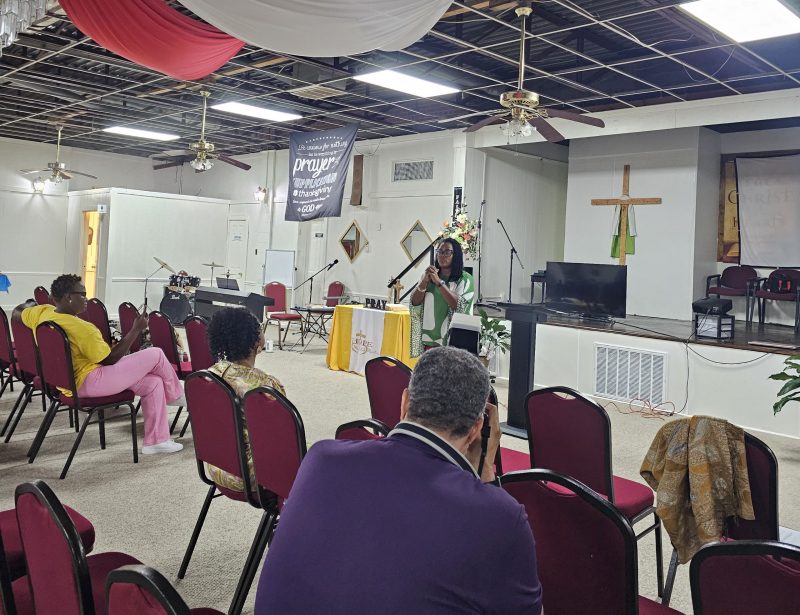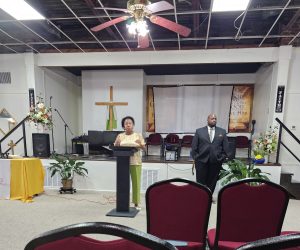
The East End Coalition advocates for the health of Newport News residents against coal ash, which it says poisons the air, water and soil of their community. Newport News is a majority-minority city in the Hampton Roads region of Virginia—home to a significant low-income population living alongside shipyards and three coal terminals owned by the company Kinder Morgan that export 35% of all coal in the United States. Coal ash, which is a byproduct of burning coal, is dangerous because it contains toxins like arsenic, chromium, lead and mercury, and can spread by wind and seep into groundwater, contaminating air and drinking water. Newport News has a high incidence of respiratory illness, but the coalition says authorities are not doing enough. “The EPA has done studies here, but they don’t give us raw data. What they tell us is that the level of pollution is acceptable,” said co-founder Carol Brown, who explained that the dust is visible and quickly accumulates on all surfaces.

Co-founder Valerie Beverley speaks during the East End Coalition’s event “CLEAN AIR CLEAN WATER CLEAN FUTURE: Your Right, Our Fight” in August 2024. Photo: Uneita Scott
Founded in 2023, the East End Coalition was established by three long-time Newport News residents who had been organizing with the Young People’s Guild Foundation and the Tidewater Coalition for the People. The East End Coalition hosts educational events and “community resource walks” for understanding neighbors’ needs, conducts health assessments, and advocates for more research and legislation to curb the devastating effects of coal ash. The co-founders’ families have experienced what they say are the consequences of living near dirty industry, suffering from conditions such as bronchitis, asthma and COPD. “One of our members has a sister who had to have a partial lung removal because she had a black lung at 14 years old,” said co-founder Valerie Beverley. Her sister, Carol, said her vision for the community “is a place where our kids are safe, their health and welfare are valued, and where the first place that people think of putting dangerous things is not our neighborhoods.”